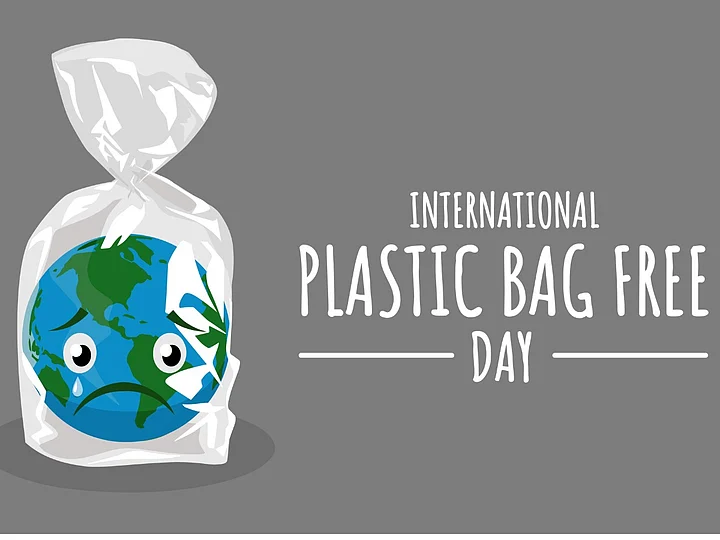International Plastic Bag Free Day is celebrated on July 3 every year. The day is dedicated to promoting a zero-tolerance approach to plastic pollution and the importance of recycling and composting plastic waste.
Plastic bags are a convenient and widely used part of our everyday lives, but they can also be a major source of environmental pollution. They can take up to 500 years to disintegrate, so they can accumulate in soil and water, causing harm to ecosystems and marine life. They can also clog drainage systems, disrupt recycling processes, and contaminate waterways. Let's know about the history, significance and theme for International Plastic Bag Free Day 2024:
International Plastic Bag Free Day 2024: History
The history of the plastic bag dates back to the early 1930s, when a chemical plant in Northwich, England, accidentally created polyethylene, the most commonly used plastic. The material was first used to create secret military gloves for use during World War II. In the 1960s, the Swedish company Celloplast patented the one-piece polyethylene shopping bag, which quickly replaced cloth and plastic in Europe.
After the successful marketing of plastic bags as a superior to paper and reusable bags, their use spread rapidly throughout the world. This led to the discovery of the Great Pacific Garbage Patch in 1997, which was the largest of several gyres in the world’s oceans. The immense amounts of plastic waste that have accumulated in the Great Pacific Garbage Patch threaten marine life, including sea turtles, whales, dolphins, and many others.
International Plastic Bag Free Day 2024: Significance
Today, International Plastic Bag Free Day is celebrated by nearly 1,500 organizations as part of the Break Free from Plastic Movement. The movement is committed to finding solutions to the plastic pollution crisis and making the planet safer for humans, the environment, and wildlife.
International Plastic Bag Free Day 2024: Activities
One of the main activities of the movement is to encourage people to stop using and not to ask for plastic bags when they shop. Other activities include reducing, reusing, and recycling plastic waste.
We can support the movement by taking simple steps such as reducing our plastic footprint, recycling, and composting plastic waste. We can also encourage our friends and family to do the same. By taking these actions, we can make a difference in our own community and help to create a cleaner, healthier planet for generations to come.
(Disclaimer: Parts of this article were generated by AI and published after the content was editorially modified and verified by a human based on their own judgement and expertise. The Quint does not publish AI-generated content without direct human involvement and oversight).
(At The Quint, we question everything. Play an active role in shaping our journalism by becoming a member today.)
